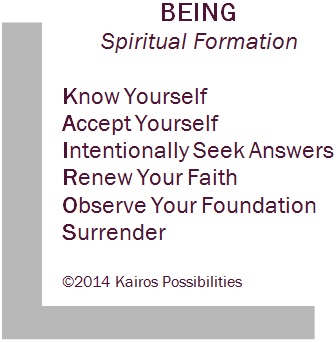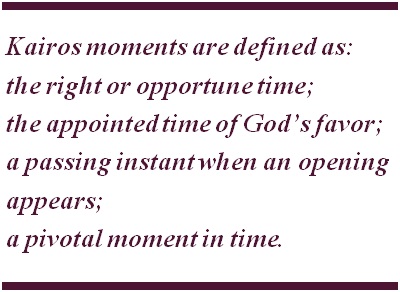Scientific research is now validating what Frankl and others have previously theorized. That is, purpose is fundamental to life. Research is showing a relationship between purpose and mechanisms in the brain that influence the immune response and the will to live. People with purpose are less prone to disease. (Craig & Snook, 2014) In an 11-year study funded by NIH, Dr. Robert Butler looked at the correlation of having a sense of purpose and longevity. He found that individuals who expressed clear goals—something to get up for in the morning, something that made a difference—lived longer and were sharper than those who did not. His research connected a sense of purpose to health and well-being, not just longevity. (Leider R. J., 2010)
Individuals who have a high sense of purpose have improved immune system gene expression that allows them to reduce infections and inflammation. Although the mechanism has not yet been identified, individuals with physically diseased brains as a result of Alzheimer disease, who had purpose in their lives, were able to prevent the disease from fully manifesting
 a cognitive decline. (Fredrickson, Grewen, Coffey, Algoe, & Firestine, 2013) (Boyle, et al., 2012)
a cognitive decline. (Fredrickson, Grewen, Coffey, Algoe, & Firestine, 2013) (Boyle, et al., 2012)
Research in organizational leadership has identified purpose as the way for executives to accelerate their growth and to have greater impact. While this information is growing in awareness in businesses, fewer than 20% of leaders have a strong sense of purpose. Even less can articulate their purpose in a concrete statement. Having purpose to impact, that is, engaging in the process of finding purpose and the courage to live it, is the most important developmental task a leader can undertake. (Craig & Snook, 2014)
Employees who have a sense of purpose and a passion for their work create a high performing workforce. In a research study conducted by Gretchen Spreitzer and Christine Porath, highly sustainable individual and organizational performance was found when employees thrived, that is, the employees were engaged in creating the future of the company and their own. Thriving employees are highly energized and they know how to avoid burnout. (Spreitzer & Porath, 2012)
The research shows that vitality and learning are key components to creating thriving employees. Employees who find purpose in their work have a sense that what they are doing on a daily basis makes a difference. They create vitality spark energy in themselves and others. Providing opportunities for employees to gain new knowledge and skills allows them to believe in their potential for future growth. Both vitality and learning are needed to create thriving employees. (Spreitzer & Porath, 2012)
The Purpose Economy
Aaron Hurst proposes that we are evolving into a Purpose Economy. He asserts that in 20 years a Purpose Economy will supersede the Information Economy. A Purpose Economy is one that is marked by a sense of community, opportunity for self-expression and personal growth, and global impact. It values establishing purpose for employees and customers. There has already been a substantial shift to discover innovative approaches to prioritize purpose in the lives of individuals. Public desire has changed what, how, from whom, where and how much we buy. (Hurst, 2014)
This shift has given rise to whole new breeds of organizations, products, relationships, and services that discover innovative approaches to prioritize purpose in people’s lives, while often addressing the most persistent social and environmental problems. The Purpose Economy is driving the creation of organizations such as Etsy, a community based company with a social mission, which operate both to succeed financially as a business as well as to serve the local and global communities. Etsy’s mission is to re-imagine commerce in ways that build a more fulfilling and lasting world. (Etsy, 2014) As a Certified B Corporation, Etsy is designated a better company—better for workers, better for communities and better for the environment. B Corps are using business as a force for good in the world. (B the Change, 2014)
Stages of Purpose
Purpose is examined and re-examined at various times along our life journey. Frequently it is a crisis or major life transition that will make the seeker reexamine what life and purpose are all about. It is during these times that seekers have the greatest needs and experience the greatest opportunity for creating clarity in their lives. While coaches can play a significant role in supporting the individual at these times, coaching for purpose is a valuable process whenever there is a choice to be made that will affect the rest of their life and impact the lives of others.
In The Three Stages of Purpose, Leider describes three stages of progression along the journey towards purpose in life.
Stage 1: Uncovering—“It’s All About Me”
This early stage of purpose begins at birth. Our unique path in life is uncovered through our experiences in the world. We receive our initial values during this stage. We learn not only what is purposeful, but also what is possible. Purpose is perceived as coming from others, and is directed towards ourselves.
 At Kairos Possibilities, this stage is identified as Being. It is during this stage that the seeker engages in Spiritual Formation through exploration of their identity and acceptance of their foundation. Failure to uncover purpose at this stage can result in the seeker becoming self-absorbed, believing the universe revolves around the self. They are no longer seekers as they believe they have found the answers to all of life’s questions. Purpose at this stage requires the seeker to change their attitudes and behaviors when engaged in circumstances beyond their control. Choice of attitude is always an option and may be the only aspect in life that the seeker does have control over. (Frankl, 2006) Choice elicits the power of the Purpose Effect in the individual.
At Kairos Possibilities, this stage is identified as Being. It is during this stage that the seeker engages in Spiritual Formation through exploration of their identity and acceptance of their foundation. Failure to uncover purpose at this stage can result in the seeker becoming self-absorbed, believing the universe revolves around the self. They are no longer seekers as they believe they have found the answers to all of life’s questions. Purpose at this stage requires the seeker to change their attitudes and behaviors when engaged in circumstances beyond their control. Choice of attitude is always an option and may be the only aspect in life that the seeker does have control over. (Frankl, 2006) Choice elicits the power of the Purpose Effect in the individual.
 Stage 2: Discovering—“It’s All About Us”
Stage 2: Discovering—“It’s All About Us”
This stage begins when we choose to be less self-absorbed and choose to make a difference in the lives of those around us. Although we often do not know what the purpose is, we allow ourselves to be used for a greater purpose. We see glimpses of an authentic life. We establish meaningful relationships. We engage in service towards those around us; family, friends, neighbors, co-workers. We experience kairos moments as people and opportunities to serve them unfold before us. Purpose is perceived as residing outside ourselves and is directed toward